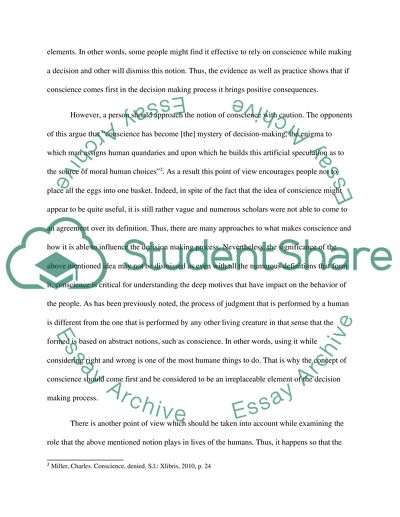Cite this document
(“Should conscience always come first in making ethical choices Essay”, n.d.)
Retrieved from https://studentshare.org/religion-and-theology/1664025-should-conscience-always-come-first-in-making-ethical-choices
Retrieved from https://studentshare.org/religion-and-theology/1664025-should-conscience-always-come-first-in-making-ethical-choices
(Should Conscience Always Come First in Making Ethical Choices Essay)
https://studentshare.org/religion-and-theology/1664025-should-conscience-always-come-first-in-making-ethical-choices.
https://studentshare.org/religion-and-theology/1664025-should-conscience-always-come-first-in-making-ethical-choices.
“Should Conscience Always Come First in Making Ethical Choices Essay”, n.d. https://studentshare.org/religion-and-theology/1664025-should-conscience-always-come-first-in-making-ethical-choices.


